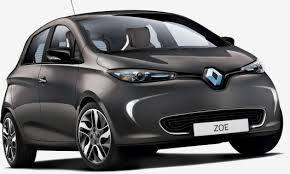reduce fuel consumption
How Volkswagen is preparing to enter the market of electric vehicles series I. D.
 In the Volkswagen showroom, near Wolfsburg, gathered about 5,000 dealers from all over Europe (Germany, Hungary, Austria) to witness the preparation of the company to enter the world market of electric vehicles from the series I. D. the Manufacturer wants to prepare its sales team for the era of electric mobility. The event was attended not only by dealers, but also by everyone who wants to get acquainted with the world of electric mobility.
In the Volkswagen showroom, near Wolfsburg, gathered about 5,000 dealers from all over Europe (Germany, Hungary, Austria) to witness the preparation of the company to enter the world market of electric vehicles from the series I. D. the Manufacturer wants to prepare its sales team for the era of electric mobility. The event was attended not only by dealers, but also by everyone who wants to get acquainted with the world of electric mobility.
Most of the information at the event remains confidential, as some electric vehicles presented in the showroom will not be released to the market for several years. Also, some details about vehicles and plans should remain confidential for reasons of competition, which is the norm at such events. Continue reading
Why is it more profitable to produce electric cars than cars with ice?
 1. Minimum engine options maximum power configurations
1. Minimum engine options maximum power configurations
The biggest advantage of electric vehicle manufacturers is the easily variable power inherent in electric motors.
The manufacturer can produce only a few motors, but offer up to 30 different transmission options. In short, “horsepower”, which is not the correct definition for electric motors, can be adjusted, that is, one motor can have several power options.
In turn, the manufacturer of cars with ice, to offer similar variability and be able to compete, must spend money on the development and creation of a much larger number of engines, with each engine will need its own production and Assembly line, while the manufacturer of electric vehicles is satisfied with the simplicity of design and savings on Assembly due to the smaller size of the electric motor. Continue reading
What is the difference between electric vehicles and hybrids or plug-in hybrids
 Electric vehicles that you can buy are a relatively new product on the market. Hybrid cars that combine a conventional petrol or diesel engine with an electric motor have been around for a long time.
Electric vehicles that you can buy are a relatively new product on the market. Hybrid cars that combine a conventional petrol or diesel engine with an electric motor have been around for a long time.
Gasoline-electric cars like the Toyota Prius or the new RAV4 hybrid aren’t technically electric cars because they can’t be plugged in and charged from an external source. They have very low-capacity batteries, and the electric motor is designed to help a conventional engine, rather than drive the car yourself.
Hybrids (HEV) charge their batteries, restoring energy that is usually lost during braking and deceleration, and sometimes directly from a gasoline engine. Continue reading




